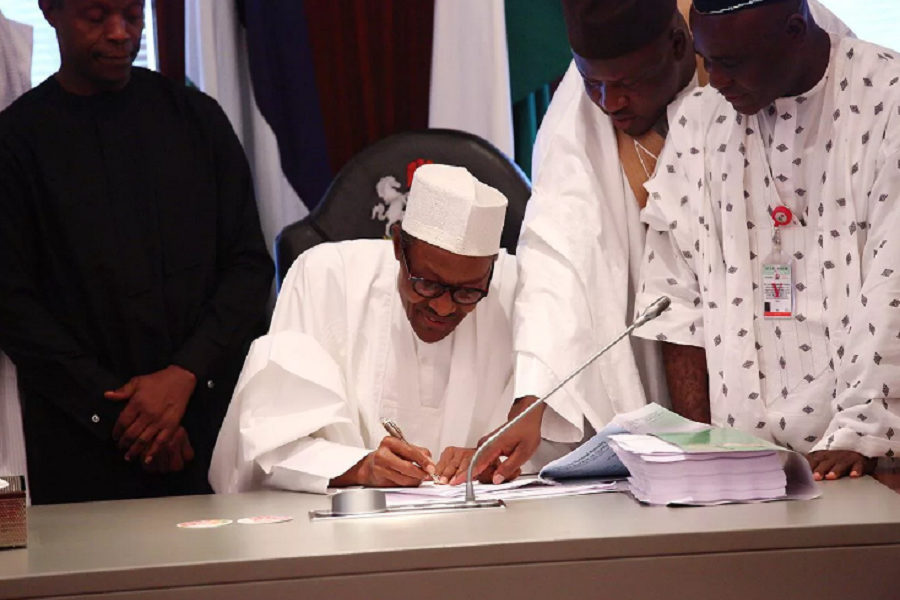
The president’s assent to the budget is coming weeks after horse-trading between the presidency and the national assembly.
In April, the national assembly transmitted details of the budget to the president after it had passed the bill on March 23.
But the president returned the document to the national assembly on the grounds that there were “grey areas” in it that needed to be sorted out.
The legislature then constituted a 10-man committee to smooth out the contours.
After a few weeks of legislative treatment, the final copy of the document was transmitted to the president on Thursday.
And, on Friday, he signed it into law.
In December, the budget proposal presented to a joint session of the national assembly by Buhari was N6.07 trillion. A total of N351 billion was for statutory transfers, N2.8 trillion for recurrent expenditure and N1.8 trillion for capital expenditure.
The legislature, based on the recommendation of its committees on appropriation, adopted $38 per barrel crude oil benchmark for the budget, as proposed by the federal government. It also adopted a foreign exchange rate of N197 per dollar as proposed by the government.

It, however, reduced the total budget sum from N6.07 trillion to N6.06 trillion: N351 billion for statutory transfers, N1.4 trillion for debt service, N2.6 trillion for recurrent expenditure, and N1.5 trillion as capital expenditure.






